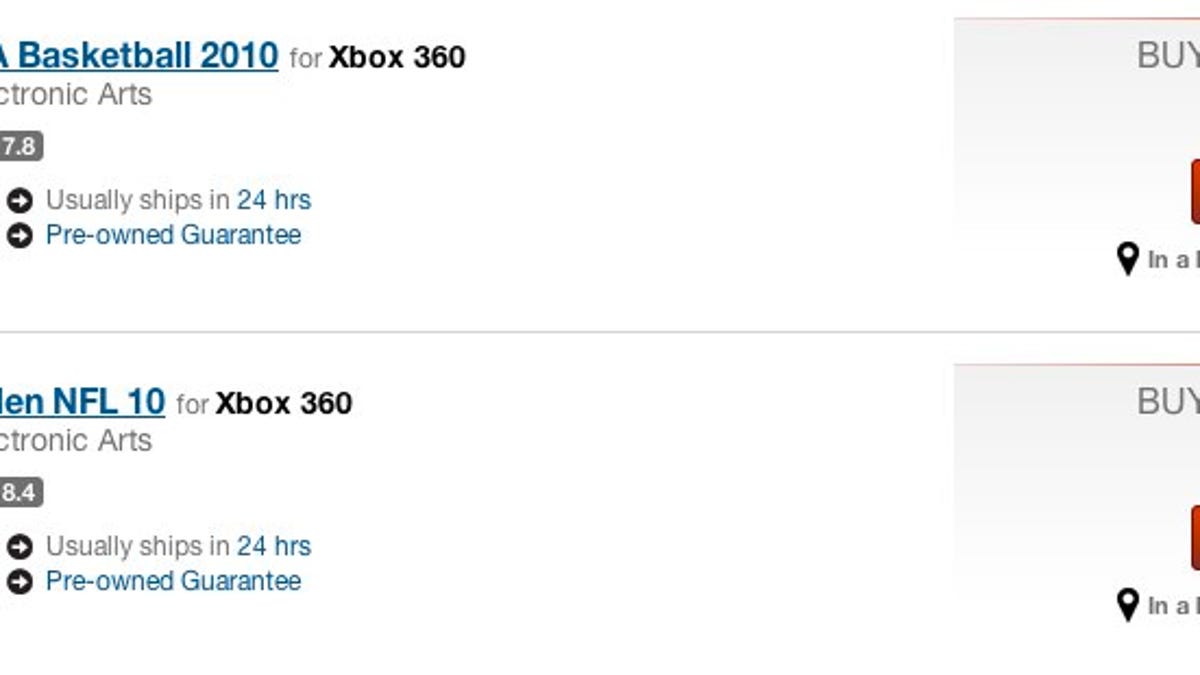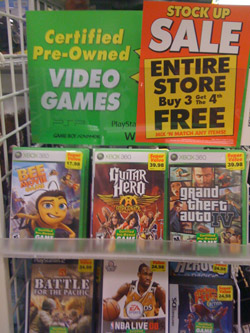But the developer would see profit from people being able to resell their game, that's the whole point. I could perfectly see a party like Devolver do this. They have enough clout and games to make a basic store but nowhere near the infrastructure to set up their own private marketplace.
My main argument in this is really just that people keep pointing to big marktleaders who've had a grip on the marketplace AND the infrastructure for a decade and say "look they haven't done it so obviously no developer or publisher want to do it" while the whole idea behind blockchains is to move away from that kind of centralized power. Yeah, ofcourse Steam isn't going to allow it, why would they? They're king of the world. They'd be giving up power. It's the other that have alot to gain.
What logistical mess with selling an NFT? It doesn't cost the company anything to make one.
What incentive does GOG have with selling DRM-free games? If they research it and -IF- projections are more people are likely to buy their products if it's possible for them to recoup the cost by reselling the game when they're done with it, it's a win for everyone.
Let's say I'm an indie developer. I make a game, and I price it at 30 USD and I hope I'll sell 300k copies of it. That's 9 million revenue, of which 30% goes to Steam, so 6.3 million for me.
To make the same revenue I do on Steam but I self publish, I'd need to sell 210.000 copies of my game. Very unlikely without the power of Steam, AND I'd need to cover infrastructure costs like servers and a storefront.
If I make the game an NFT and I allow reselling where there is a 50/50 split when a user resells the game for let's say an average of 20 USD (so 10 USD for the seller, 10 USD for me), I don't need any servers. All I need is a way to link the NFT to a user on a blockchain and to verify the user each time he logs in to the game and check the NFT status linked to the user. Now I'd need to project how many people are likely to buy the game at full price and how many % of those people are likely to resell the game afterwards. Are more people likely to try my game because they can easily resell it and recoup 10 USD? How good is my game and how likely are they to resell it? Those are still open questions. But in any case, the treshold to reach profitability is already lower because I get 100% of the revenue of each new game sold, I get 50% of the revenue of each game resold and I don't have to upkeep a complicated storefront or keep any server infrastructure running. Will this get me beyond the 6.3million I would've gotten from Steam? I'm pretty sure any publishers not Valve is already doing the calculations.
I love these artificially constructed scenarios that are designed to prove NFTs could have value. Like "you don't need a server to handle the transaction of used game sales the NFT handles it", how do you think the receiver of the second hand game is going to get the data for the game? From the aether? No, they'll have to download it from the server anyway!And this doesn't solve the issue of the person who sells off their game still being able to access the data. You still need a server call to prevent that too. You're literally reinventing the wheel here, you will still need the same tech we have today to handle anything but the actual transaction itself, and the tech today can handle transactions too so there is no need. This is a contrived scenario.
The problem with all the justifications for NFTs is that 1- NFTs are not the actual content, so you still need infrastructure to deliver and authenticate and then later remove the content and 2- NFTs are simply transaction records so anything that is non transactional (e.g. actually consuming the content) are poorly addressed by them and you have to engineer these scenarios to act otherwise.
*: yes I know decentralized blockchain file systems exist too but by design they're immutable aka things can never be deleted off of them which makes them extremely problematic because people can store things like sexualized images of minors or non consensual images and you can never delete them so that's a terrible idea to begin with
Last edited:




